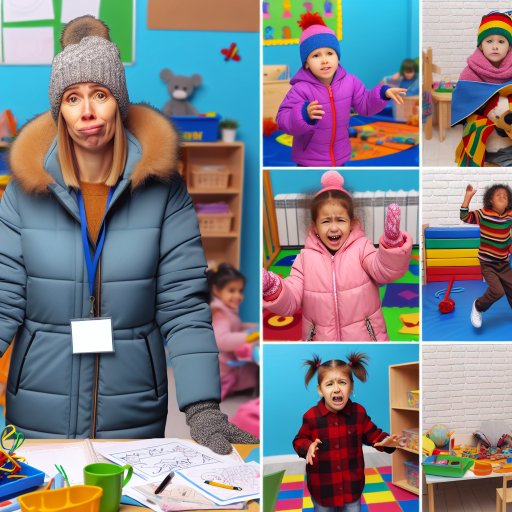Opportunities for Personal Growth and Development
Skill Development
Working as a youth program facilitator enhances various skills.
You improve communication abilities through constant interactions.
Moreover, you learn to manage groups effectively and efficiently.
This role also fosters leadership skills for future endeavors.
Networking Opportunities
You establish valuable connections within the community.
Meeting fellow facilitators broadens your professional network.
Engaging with youth organizations exposes you to diverse perspectives.
These relationships can lead to future collaborations and opportunities.
Emotional Intelligence Improvement
Facilitating programs strengthens your emotional intelligence.
You learn to read and respond to the emotions of others.
This skill is crucial when working with diverse youth populations.
Furthermore, it enhances your overall interpersonal effectiveness.
Personal Fulfillment
Helping youth discover their potential provides deep satisfaction.
Witnessing their growth instills a sense of accomplishment.
Additionally, you contribute positively to the community.
This impact can lead to increased motivation in your own life.
Coping with Challenges
This role presents various challenges that foster resilience.
Overcoming obstacles strengthens your problem-solving skills.
You learn to adapt and create solutions under pressure.
Ultimately, these experiences shape your character and growth.
Building Leadership and Communication Skills
Enhancing Leadership Abilities
Being a youth program facilitator enhances your leadership skills effectively.
You learn to guide groups of young individuals through various activities.
This role requires decision-making and innovative problem-solving daily.
As you lead, you inspire confidence and motivate others to excel.
Furthermore, you develop the ability to manage conflicts gracefully.
Unlock Your Career Potential
Visualize a clear path to success with our tailored Career Consulting service. Personalized insights in just 1-3 days.
Get StartedImproving Communication Skills
Effective communication is a cornerstone of being a facilitator.
You practice clear and concise messaging with diverse audiences.
Active listening becomes essential as you engage with youth participants.
Your ability to provide constructive feedback improves significantly.
Additionally, you learn to adapt your communication style for different situations.
Building Rapport with Youth
Fostering connections with young people enriches your experience.
You become adept at understanding their perspectives and emotions.
This skill helps in creating a supportive environment for learning.
As you build rapport, trust and openness flourish in group settings.
Ultimately, this strengthens the overall program dynamic and effectiveness.
Creating a Positive Impact on Youth in the Community
Fostering Personal Growth
As a Youth Program Facilitator, you help young people develop essential life skills.
These skills include communication, leadership, and teamwork.
Furthermore, you encourage self-discovery and confidence among participants.
Encouraging Community Engagement
Your role promotes civic responsibility among the youth.
By participating in community projects, young people learn the importance of giving back.
Additionally, they gain a sense of belonging within their community.
Creating Safe Spaces
Facilitators provide a safe and supportive environment for youth.
This allows them to express themselves freely without judgment.
Moreover, a positive atmosphere helps build trust and rapport with the participants.
Paving the Way for Future Success
You equip young people with tools for their academic and career aspirations.
Workshops can cover topics like resume writing and interview techniques.
These experiences prepare participants for future challenges in the workforce.
Building Connections
Your role allows you to connect young individuals with mentors.
Mentorship programs foster relationships that inspire growth and guidance.
Additionally, these connections can lead to internship or job opportunities.
Promoting Inclusivity
You advocate for diverse participation in youth programs.
Inclusivity ensures all youth feel welcomed and valued.
As a result, programs become richer through varied perspectives and experiences.
Discover More: Building Meaningful Connections as an Early Childhood Educator
Gaining Experience in Program Planning and Execution
Understanding Program Planning
Program planning involves determining the goals and objectives of the initiative.
It requires identifying the target audience and their needs.
Moreover, effective planning includes resource allocation and budgeting.
This stage lays the foundation for successful program execution.
Skill Development Through Implementation
Implementing programs helps develop essential skills in real-world settings.
Facilitators learn to manage diverse groups with varying needs.
They also enhance their communication and leadership abilities.
Additionally, facilitators improve their problem-solving skills as challenges arise.
Collaboration and Networking
Working in youth programs fosters collaboration with various stakeholders.
Facilitators build relationships with community organizations and schools.
This networking opens doors for future opportunities and partnerships.
Such connections are crucial for professional growth and resource sharing.
Evaluating Program Success
Evaluating outcomes is vital for continuous improvement.
Facilitators learn to assess whether program goals were met.
This reflection leads to valuable insights for future initiatives.
Ultimately, effective evaluation enhances the impact of youth programs.
Personal Growth and Fulfillment
Beyond professional skills, facilitating youth programs offers personal growth.
Facilitators often experience a sense of fulfillment from helping others.
They contribute to the development of young minds and communities.
This meaningful work can lead to greater job satisfaction and purpose.
Explore Further: How to Become a Certified Early Childhood Educator in Canada
Enhancing Resume and Career Prospects in Social Services
Developing Valuable Skills
Working as a youth program facilitator develops essential skills.
You will gain experience in communication, leadership, and problem-solving.
These skills are highly valued by employers in social services.
Additionally, you enhance your ability to work in diverse environments.
Building a Professional Network
Engaging with youth and other professionals builds a strong network.
Your connections can open doors to new job opportunities.
Networking enhances your knowledge of the industry.
Furthermore, relationships formed may lead to mentorship opportunities.
Gaining Practical Experience
This role offers hands-on experience in youth development programs.
You will learn how to design, implement, and evaluate programs.
Employers appreciate candidates with real-world experience.
Importantly, you can showcase your contributions in future job applications.
Increasing Job Market Competitiveness
The demand for social services professionals continues to rise.
Having experience as a youth program facilitator sets you apart.
Employers look for candidates who understand the challenges facing youth.
Your unique background will enhance your employability within the sector.
Contributing to Community Development
As a facilitator, you play a vital role in community growth.
Engagement with youth leads to positive social change.
Demonstrating community impact strengthens your resume.
Employers recognize the value of candidates committed to service.
Find Out More: Career Advice for Aspiring Youth Program Facilitators

Networking with Professionals in the Youth and Education Sectors
Building Valuable Connections
As a youth program facilitator, you connect with a diverse network of professionals.
This network includes educators, community leaders, and organization representatives.
Through these connections, you can share experiences and strategies for youth development.
These interactions foster friendships and professional collaborations.
Access to Resources and Opportunities
Networking opens doors to valuable resources.
You gain access to workshops, training sessions, and conferences in the industry.
Moreover, collaborating with experienced professionals provides insights into best practices.
This can immensely enhance your program’s effectiveness.
Sharing Best Practices and Innovations
Networking facilitates the exchange of innovative ideas.
You can learn about new programs and methodologies in youth development.
Sharing experiences also helps in problem-solving common challenges.
This collaboration ultimately benefits the youth you serve.
Career Development and Mentoring
Networking creates opportunities for mentorship.
Experienced professionals can guide you in your career path.
They offer insights based on their own experiences and challenges.
This mentorship can be vital for personal and professional growth.
Enhancing Community Impact
When you network, you increase your program’s community impact.
Collaborative efforts lead to stronger initiatives that benefit local youth.
Partnerships with nonprofits and educational institutions can expand your reach.
This collective effort promotes a more supportive environment for youth development.
Discover More: How Technology Is Changing the Role of Early Childhood Educators
Understanding the Challenges Faced by Youth Today
Impact of Social Media
Social media influences youth in profound ways.
It fosters connections but also creates unrealistic expectations.
Young people often compare themselves to others online.
This can lead to feelings of inadequacy and anxiety.
Pressure to Succeed
Today’s youth face immense pressure to perform academically.
This pressure can stem from parents, teachers, and peers.
Many students fear disappointing others with their results.
As a result, stress and burnout can occur.
Mental Health Issues
Mental health challenges are increasingly common among youth.
Anxiety and depression rates have surged in recent years.
Many young people do not seek help due to stigma.
They often hide their struggles from friends and family.
Economic Disparities
Economic conditions affect youth’s opportunities significantly.
Many struggle to find jobs after graduation.
Financial burdens can limit access to education and resources.
This creates a cycle of disadvantage for some youth.
Changing Family Dynamics
Family structures have evolved, impacting youth development.
Some youth face instability due to parental separations.
Others may lack support from their families entirely.
As a result, they may seek guidance from external sources.
Fostering Teamwork and Collaboration Among Peers
Creating a Supportive Environment
A youth program facilitator promotes a supportive atmosphere for participants.
They encourage open communication and active participation.
This environment fosters trust among peers.
Youth feel empowered to express their thoughts freely.
Encouraging Group Activities
Facilitators design engaging group activities.
These activities challenge youth to work together.
Participants learn to value each other’s contributions.
Group projects develop essential collaboration skills.
Effective Conflict Resolution
Facilitators teach conflict resolution strategies.
This skill helps youth navigate disagreements constructively.
They learn to listen actively and empathize with others.
Developing this skill builds stronger relationships.
Enhancing Leadership Skills
Facilitating programs helps youth develop leadership qualities.
Participants take turns leading discussions and activities.
This practice boosts their confidence and communication skills.
Effective leadership promotes collaboration among peers.
Building Lasting Connections
Facilitators create opportunities for meaningful interactions.
These connections last beyond the program.
Youths often form friendships that support their growth.
These relationships enrich their social development.




